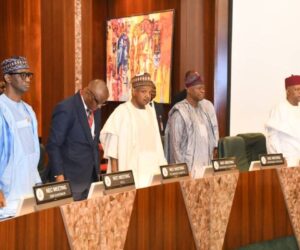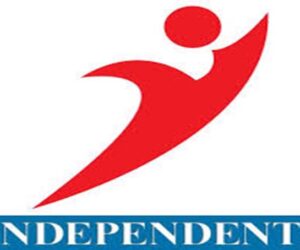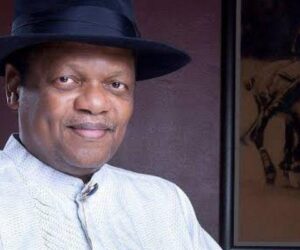…considers making states contribution to health funding mandatory
…as calls grows for budget reforms, data-driven policies, accountability
Nigerian government is pushing for increased domestic finding for healthcare with a financing plan anchored on private partnerships, excise taxation, fiscal policy reforms and a rapid expansion of health insurance to put the country on track to Universal Health Coverage, while easing burden of healthcare on citizens.
Muhammad Pate, coordinating minister of health and social welfare, reflecting on outcomes at the close of a four-day national health financing dialogue organised by the federal ministry of health with the theme “Reimagining the Future of Health financing in Nigeria” outlined multi-pronged strategies designed to boost and mobilise new domestic resources, improve accountability and ensure health spending delivers better outcomes for citizens.
This renewed push as international donors scale back health aid worldwide, compounding Nigeria’s vulnerabilities. Although not the central driver of the crisis, reduced funding for HIV, tuberculosis and malaria programmes has already left gaps that the federal government is struggling to fill due to decades of underinvestment and poor funding, according to multiple stakeholders.
Read also: Fidson Healthcare, Ohara, deepen alliance to boost Africa’s pharma sector
Nigeria currently spends less than 5% of its annual budget on health, far short of the 15 per cent pledged under the 2001 Abuja Declaration. Meanwhile, health insurance coverage remains below 10%, leaving the majority of Nigerians without any form of financial protection.
Pate, spekaing at the panel session in the dialogue said the funding cut represents opportunity for Nigeria to look inwards. He said the government is looking to broaden the fiscal base for healthcare, redirect sin taxes, expand insurance coverage through the National Health Insurance Authority, and attract private investment into health infrastructure and manufacturing, and is also considering startegies to ensure states commit more to funding.
He described the measures as part of a “sector-wide approach” to reduce the burden on households and strengthen the resilience of the health system.
The minister confirmed ongoing efforts to raise the Basic Health Care Provision Fund from 1 to 2% of the Consolidated Revenue fund, and bill to that effect will be pushed at the National Assembly. The extra allocation, if approved, he said would be directed towards vaccines, essential medicines and social protection.
The minister also disclosed that the federal government and state governors are weighing a mechanism to ensure counterpart funding for basic health care is deducted at source, in the same way as the ecological fund. He said this would guarantee that local governments meet their obligations and help reduce commodity financing shortfalls for malaria, HIV and immunisation programmes.
On revenue mobilisation, Pate welcomed ongoing fiscal reforms and hinted at a proposed introduction of health-related excise levies, describing it as a “double win”, helping to curb tobacco and alcohol consumption while raising money to strengthen health and social spending.
The minister, also noted that insurance expansion will form a strong pillar of the reform drive, informing that the National Health Insurance Authority will work make enrolment compulsory, with Pate emphasising that wider risk pools will allow more efficient resource mobilisation and expand coverage. “This will accelerate our progress towards universal health coverage and boost health’s contribution to Nigeria’s GDP,” he said.
He also emphasised on private capital, stating that a proposed Health Infrastructure Fund, as part boffins fiscal reforms and other schemes will offer investors reliefs of up to 10 years for investments in health production, manufacturing and services.
Pate said a stronger public-private partnerships to bring not just funding but also expertise and innovation. “The private sector has more than money. There is entrepreneurship and innovation, and this can generate new jobs for our youth,” he said.
Pate closed with an appeal to lawmakers, governors, civil society and the private sector to sustain momentum. “In this challenging time, Nigeria is beginning to show a way of addressing global financing shocks by mobilising domestic resources,” he said. “If all stakeholders buy in, we can protect the poorest and most vulnerable while building health as a contributor to GDP.”
Taiwo Oyedele, chairman, presidential fiscal policy and tax reforms committee said taxation is key in reforming Nigeria’s health financing, noting that healthcare in advanced climes are funded on taxes.
Read also: FG unveils health hub to make healthcare more accessible, affordable for Nigerians
He disclosed that a draft policy is currently underway to channel revenues from excise taxes on alcohol, tobacco, and sugar-sweetened beverages for health financing, in a bid to secure sustainable financing for the country’s ailing healthcare system, an announcement tahtbeccited stakeholders whovhad been clamoring for taxes channeled to health.
“At the end of the day, health is funded by taxpayers. We must recognise that. People often talk about health being free abroad, but it is taxpayers who pay for it. Government must put in place the right policies to ensure efficiency,” Oyedele said.
“My committee is already working on a draft policy, which we’ll share with the Honorable Minister in due course. We think this will help us greatly”, he added.
He, also stressed the need for Nigeria to adopt a transparent and efficient framework that channels existing revenues directly to health outcomes, and a need forore robust reforms driven by data.
Wale Edun, Minister of Finance and Coordinating Minister of the Economy, noted that Nigeria must accelerate health financing reforms through mandatory insurance and stronger private sector participation if it hopes to build a sustainable healthcare system.
He warned that reliance on out-of-pocket spending is unsustainable for households already squeezed by economic pressures.
“Wherever you are in the world, healthcare is more accessible if it has been pre-planned, pre-paid, or insured. Asking people to pay at the point of illness is neither sustainable nor equitable,” he stressed, noting that President Bola Tinubu’s reform agenda is deliberately aligning fiscal stability with health sector investment.
Edun pointed out that tough but necessary economic decisions such as the removal of subsidies have restored fiscal balance and unlocked new resources for states.
“The removal of subsidies was a tough decision, but it has created fiscal space for investment where it matters most in clinics, in communities, and in households,” he said.
With states now receiving “double the kind of funds they had before,” he urged them to channel resources into healthcare delivery, while reforms in taxation, energy, and digitisation create the right environment to attract large-scale private investment.
He noted that with private spending already accounting for 74% of Nigeria’s health expenditure, government action must serve as a catalyst for more structured private sector financing of facilities, insurance schemes, and diagnostics.
Edun described mandatory health insurance as the cornerstone of reform, calling for strict enforcement and state-level premium subsidies for the poor to guarantee wider coverage.
“Insurance is critical in giving Nigerians access to the healthcare they need, when they need it. Coverage will not be optional,” he declared.
He added that macroeconomic stability must translate into stronger primary healthcare services, insisting.
In his words: “We want the clinic at the corner to be the first stop, not the last bus stop.” Edun urged stakeholders to remain disciplined, data-driven, and collaborative to build a modern, resilient healthcare system capable of lifting millions out of poverty.
Read also: LBS launches initiative to transform Africa’s healthcare
Mohamed Janabi, World Health Organisation (WHO) Regional Director for Africa, has called on Nigeria to raise public health spending to at least 20 per cent of total health expenditure.
Janabi urged Nigeria to raise public health spending to at least 20 per cent of total health expenditure, stressing that sustainable financing is the backbone of resilient health systems.
He stressed that increased investment would reduce out-of-pocket payments, protect households, and strengthen pooling and prepayment mechanisms.
“With more than 223 million citizens, how the country finances health is vital for the well-being of its people and the future of the continent. The budget allocation for health should be raised to at least 20 %
“Healthier populations are more productive, more resilient to shocks, and better positioned to drive inclusive growth.
“Nigeria’s progress is encouraging. The Basic Healthcare Provision Fund, the National Health Insurance Authority Act, and the expansion of state-level insurance schemes are steps in the right direction,” he said.
Amma Twum-Amoah, Commissioner for Health, Humanitarian Affairs, and Social Development at the African Union Commission, also called for stronger investment, emphasising that Africa must prioritise health security using its own resources.
She commended Nigeria’s approval of $1.7 billion for the HOPE Projects aimed at strengthening governance, expanding primary healthcare, and improving service delivery nationwide, describing it as a bold and visionary step.
“Amid today’s financing constraints, Nigeria has charted a bold path by approving 1.7 billion dollars for the HOPE Projects to strengthen governance, expand primary healthcare, and improve nationwide service delivery.
“This reflects vision and courage. Indeed, Nigeria’s leadership is critical, and we look to you not to disappoint Africa,” she said.
Donald Kaberuka, Former President of the African Development Bank (AfDB), also urged Nigeria to begin reimagining its economy beyond crude oil, stressing the need for responsible borrowing, effective taxation, and targeted social safety nets that protect the poor.
Read also: 10,000 widows receive financial, healthcare support from Delta govt
Kaberuka stressed that government spending must not only provide services but also build social capital.
“Public spending is not simply about allocating resources, it’s about enabling that spending to tie society together. When social capital is high, people can endure shocks. But when it is low, even minor crises can destabilize society,” he said.
He called on Nigeria to strengthen national insurance schemes, harmonize fiscal roles across federal and state governments, and adopt countercyclical budgets that prioritize investments in education, healthcare, and social infrastructure.
Kaberuka also urged Nigeria to avoid blanket subsidies, which he described as “one of the most wasteful things you can do,” while emphasizing the importance of targeted safety nets for vulnerable citizens.









